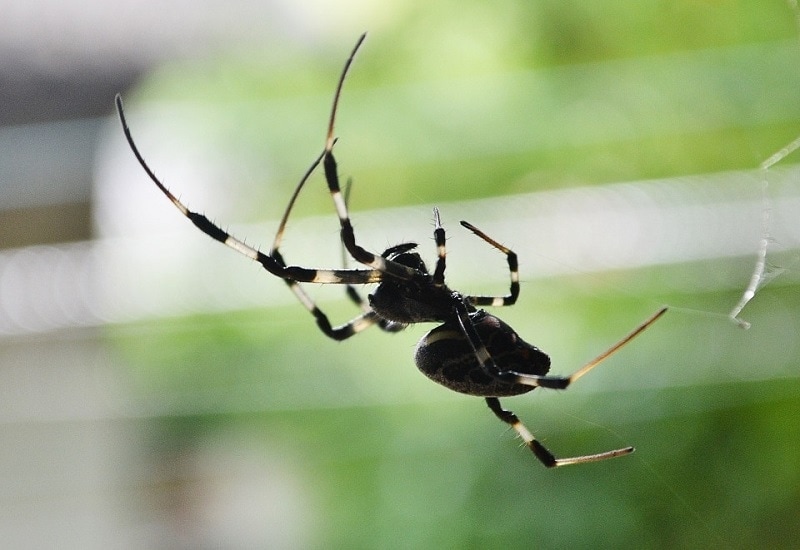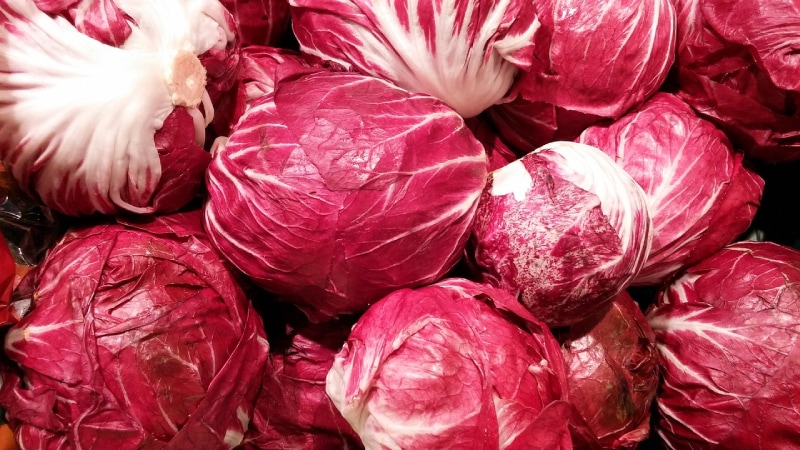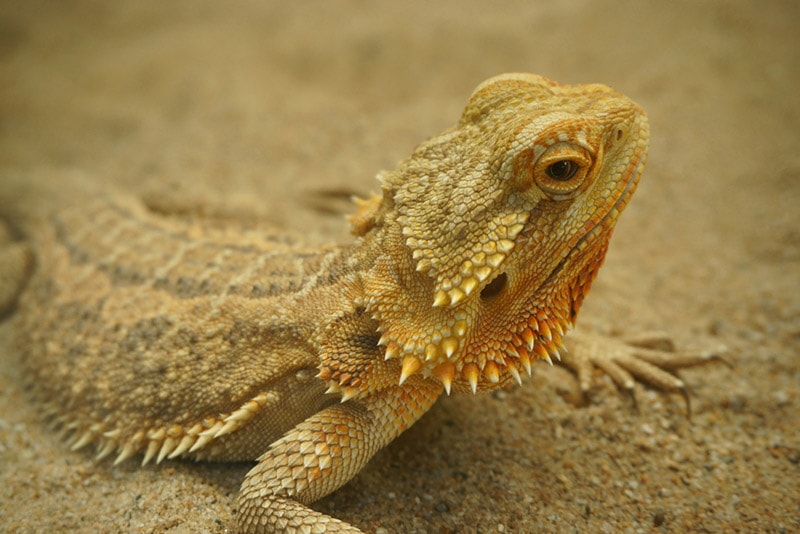Bearded Dragon Brumation: What Is It & What To Do (Vet Approved)

Updated on
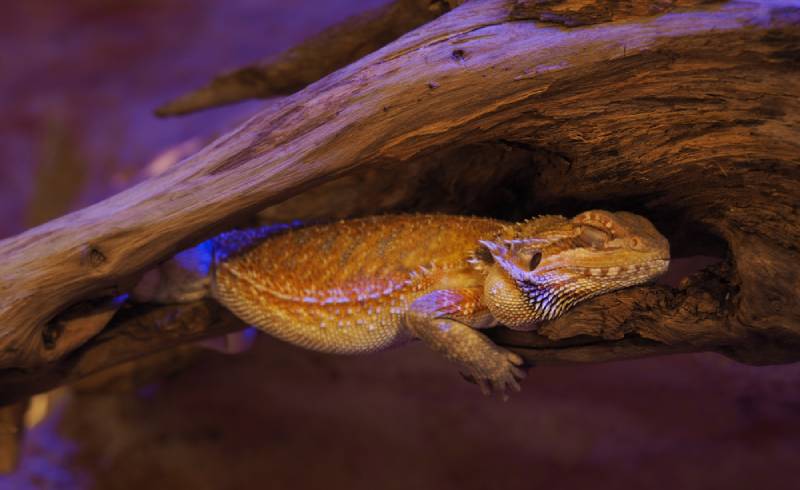
Click to Skip Ahead
Bearded Dragons are one of the most popular pet lizard species. They are considered good first-time pets and are especially good for first-time lizard owners. One of the main reasons for this popularity is that they are relatively easy to care for.
However, for first-time reptile owners, Bearded Dragons do have some unique habits and activities that can seem baffling at first. As well as regularly shedding their skin, Bearded Dragons also brumate. Brumation is similar to hibernation, with some physiological differences that we will explain further on.. In the wild, it enables the Beardie to survive cold winter months.
While pet Bearded Dragons do not necessarily need to survive cold months in the same way, some still naturally brumate every year after their first year. It is natural, will occur during winter or when conditions get colder, and it doesn’t need to be discouraged unless there are medical or physical reasons to prevent it. And once a Bearded Dragon is brumating, they shouldn’t be interrupted.
Below, we look in more depth and brumation, including what it is and how you can care for your Beardie during this period.
What Is It?
Whereas warm-blooded creatures hibernate during the winter months to survive freezing conditions, cold-blooded creatures like Bearded Dragons undergo a process called brumation. It is similar to hibernation, except that hibernating animals generally rely on their fat reserves to survive, whereas brumating animals survive by lowering their metabolic rate.. Brumating animals may move around on warmer days.They use the opportunity to go out and find water, for example, before heading back underground or into their protected holes when the temperature drops again. However, they are generally very sluggish when brumating.
Of all the pet reptiles in the world, Bearded Dragons are the most likely to brumate in captivity. Breeders often induce brumation in their pets by reducing the ambient temperature in their enclosures to 16–21°C (60–75°F) for 4-6 weeks. During this period, they will also reduce the lighting in the enclosure to 10 hours per day. This simulates winter and prepares the pets for breeding once they’re roused from their slumber (this is achieved by emulating springtime temperatures in their enclosure).
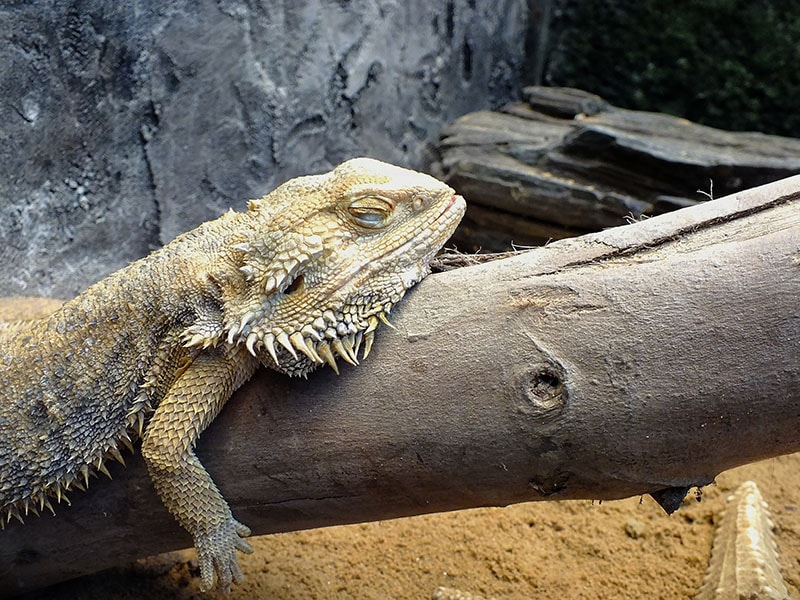
When the weather gets cold, not only are Bearded Dragons more likely to perish from the cold, but their food sources also become more scarce. As such, they find a hiding spot, such as underground or under rocks, and brumate. Their metabolism slows, meaning that they use less energy and stored energy so that they can survive on their stores of consumed food.
Pet Bearded Dragons do not face the same cold winter conditions as those in the wild. They have basking lamps and heat lamps to keep them warm. Therefore, they may not brumate, which is also completely normal.
But, in some circumstances (mostly in temperate countries and an enclosure with poor temperature regulation) as the temperatures do drop, so too does the ambient temperature within the cage. The Bearded Dragon’s body detects these drops (along with shorter days) and may prepare to go into brumation to survive the colder conditions. They will remain in brumation until the temperature reaches a safe and reasonable level, and will then re-emerge.
Even though the pet Bearded Dragon does not strictly need to brumate, it is a natural phenomenon and it is usually perfectly safe for one to go into this state.
Signs Of Brumation
Bearded Dragons generally brumate during the winter, but if there is a drop in temperature at any time of the year, this can force the reptile into a state of brumation. When they sense temperatures dropping consistently for a period of a few weeks, they will find a suitable spot in which to rest until the temperature picks up again. It pays to recognize when brumation is set to start because it enables you to provide ideal conditions and provide suitable care. Signs to look for include:
- A loss of appetite
- Lethargy
- More time asleep
- Less energy
- More time spent hiding or digging
When Does It Occur?
Not all pet Bearded Dragons will brumate, and those that do may start when they’re anywhere between 1 and 3 years old. Additionally, a Bearded Dragon may not brumate every year, even if it does so one year. This unpredictability can make it difficult to identify whether a Bearded Dragon is indeed going into brumation.
Brumation occurs during the winter. The Beardie hails from Australia, where winter occurs from June to September. In captivity, Bearded Dragons only brumate if they experience winter time (in the hemisphere they’re located) and have inadequate artificial sources of light or heating in their enclosure. . This means that they are most likely to brumate during your winter. At other times, breeders may simulate winter conditions to get their dragons to brumate before they are roused (by simulating springtime) and bred.
Brumation will normally last for anywhere between 1 and 3 months and once it has begun, it should be allowed to occur and complete naturally, which means you should avoid trying to artificially warm the temperature to encourage your Beardie to wake up after they’ve started the process.
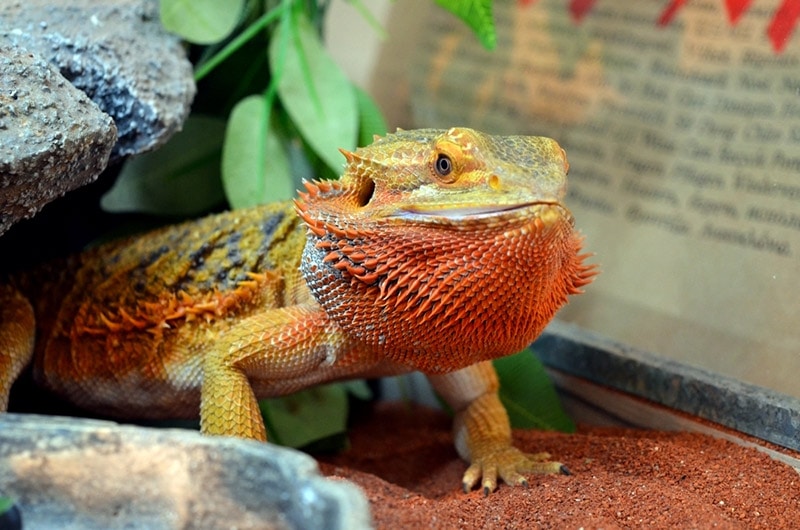
What To Do During Brumation
When your Bearded Dragon goes into brumation, they may emerge occasionally to grab water. Therefore, you should always provide access to fresh drinking water. Otherwise, you should stop feeding your Beardie once it is brumating.
You do not need to bathe your lizard during brumation.
What To Do When a Bearded Dragon Wakes Up
When brumation is complete and the Bearded Dragon awakes, they will effectively go back to eating, sleeping, and basking just as they did before brumation. You should return to their typical feeding, lighting, and heating schedule, exactly as it was before brumation began. If you don’t wish to have your Bearded Dragon undergo brumation again, you should ensure their enclosure has proper light and heating to ensure they never feel like it’s “winter time”.
How To Prevent Bearded Dragon Brumation
There is no reason to artificially prevent brumation, except in some very specific circumstances. However, there is no reason to actively encourage non-breeding pet bearded dragons to brumate either.
Young Beardies under 9 months should not be allowed or encouraged to brumate. Neither should those that are too thin or too ill to be able to survive the brumation period when they won’t be eating for up to 3 months. To prevent brumation, ensure you have thermometers set up in the enclosure and measure the temperature range, ensuring that it stays constant across the enclosure and throughout the whole year. This should be enough to discourage brumation in Bearded Dragons.
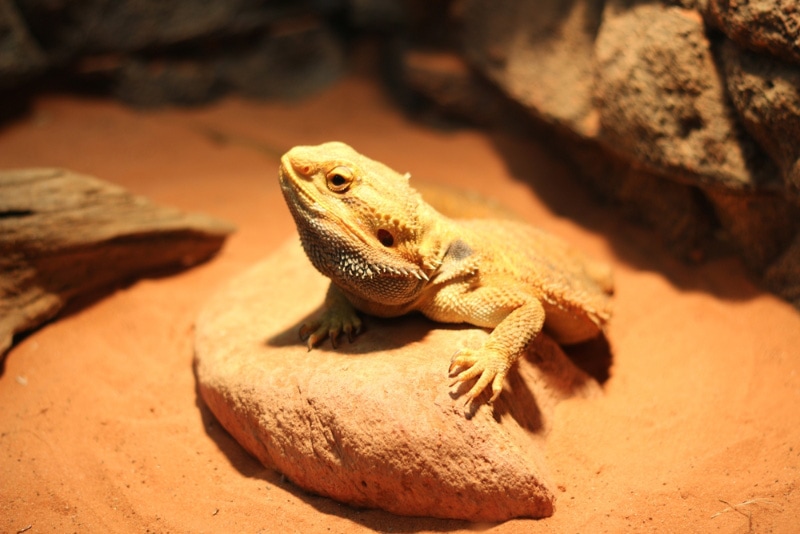
Frequently Asked Questions (FAQs)
Do All Bearded Dragons Brumate?
In the wild, all Bearded Dragons brumate if the temperature drops to a low enough level. It is the only way that a lot of Bearded Dragons can survive. However, in captivity, this isn’t necessarily true. As such, not all will brumate, and even if yours brumates one year, this doesn’t mean that it will brumate every year. Brumation is natural, but you shouldn’t worry if yours never brumates at all.
Can I Hold My Bearded Dragon During Brumation?
You should disturb your Bearded Dragon as little as possible throughout brumation. This means that you should avoid picking up and handling your pet during this time. If you’re close to your Beardie, we know it can be difficult, but it is in their best interest to be given an uninterrupted brumation period.
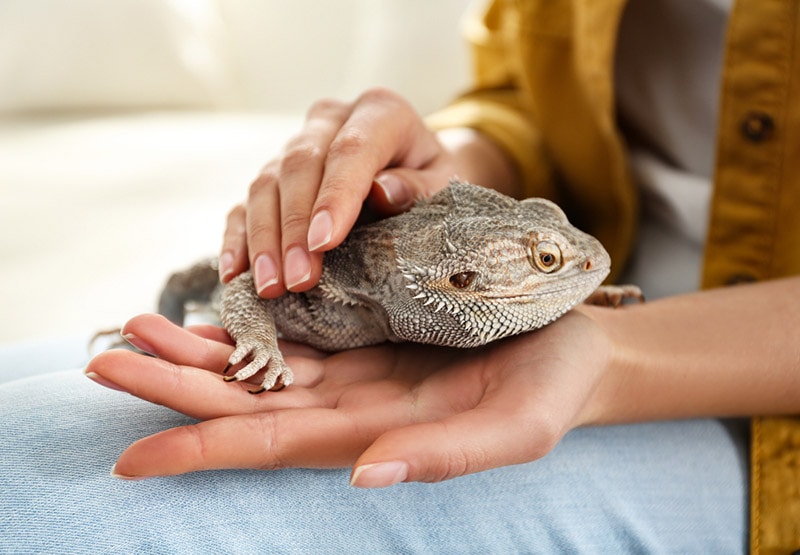
How Long Is Too Long for a Bearded Dragon To Brumate?
Brumation can feel like an eternity, especially if this is yours and your Dragon’s first time. However, it is perfectly normal for a Bearded Dragon to enter this state for as long as 3 months. Even if it has been longer, it is likely perfectly safe. If it lasts more than 3 and a half months, it’s likely an indication that your pet’s enclosure is very poorly set up. You should consult with your veterinarian to adjust the heat and light source in your pet’s enclosure to rouse them from brumation.
Should I Mist My Bearded Dragon During Brumation?
You do not need to, and should not mist your Bearded Dragon, during brumation. As long as you provide access to fresh water throughout the period, there is no reason that your Beardie will become dehydrated.
Conclusion
Bearded Dragons make fascinating pets thanks to their quirks, habits, and behavior. But while these behaviors are part of the reptile’s appeal, they can also be disconcerting and even a little worrying for owners, especially those with no previous experience keeping Bearded Dragons. Brumation sees the Bearded Dragon essentially sleep for up to 3 months, only emerging occasionally to find water, and owners that have never experienced this before can become concerned.
Though normal, brumation can be discouraged if needed, because it doesn’t offer any health benefits for non-breeding individuals.
Featured Image Credit: Dudley Simpson, Shutterstock


